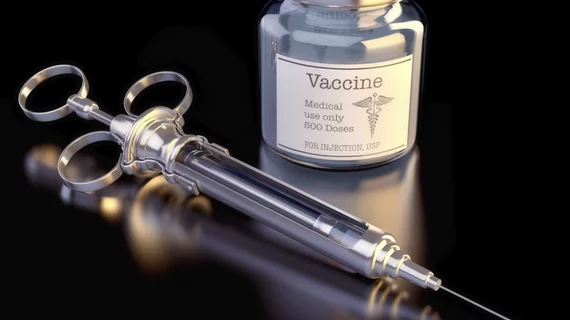HHS to fund Ebola vaccine
HHS will provide $23 million to drug manufacturer Merck to produce Ebola vaccine doses over the next year, the agency announced Aug. 21.
The funding will come from the Biomedical Advanced Research and Development Authority (BARDA), a component of HHS’ Office of the Assistant Secretary for Preparedness and Response (ASPR). BARDA will have provided roughly $176 million to support an investigational vaccine for Ebola. Already more than 192,000 people have been vaccinated as of Aug. 16.
HHS has also provided hundreds of millions to hospitals and states dealing with the Ebola virus over the past few years. The disease, which first appeared in 1976 and had a recent outbreak from 2014 to 2016, is a rare but serious illness that can be difficult to diagnosis and can have a long incubation period.
“The best way to protect people at home from Ebola is to stop the virus from spreading abroad, and effective vaccine is an essential tool in that effort,” said BARDA Director Rick Bright, Ph.D. “By ensuring that investigational vaccines continue to be available, we aid the global response and, simultaneously, help improve domestic preparedness.”
The vaccine is available for people at risk of contracting Ebola in the Democratic Republic of the Congo (DRC), which is experiencing an outbreak and receiving an international response.

